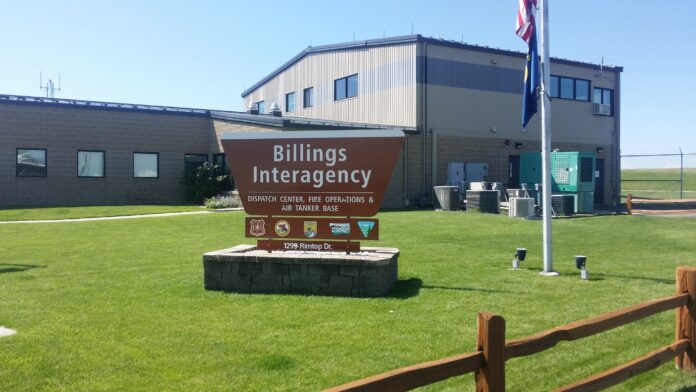Often, I am asked, “What is it like to be a SEAT pilot?” My reply usually is, “I have the best job in the world”. Believe me when I say that this life is not for everyone. Extended periods of time are spent away from home, and often one wakes up in the morning and has no idea where the they will sleep the next night. When on a federal contract many aspects of your life are controlled by the government; where you work, what hours you work and your one day off per week are all decided by fire management officials. In this article, I will attempt to reconstruct a year in the life of a fire pilot.
We will begin in late September of 2015. I had just been released from a 100-day exclusive-use contract that had been extended at the option of the government to 120 days. The majority of this contract had been in Nevada – with short assignments into Idaho, Oregon, and California. On the day that I was relieved of my duty, I was in Winnemucca, Nevada and low clouds and fog prevented me from starting on the long flight to West Texas, where our company aircraft are based in the small town of Fort Stockton. After a couple of days of watching the weather and bumming rides to and from the airport, I was finally on my way to my next fuel stop in Richfield, Utah. The last portion of this leg was in deteriorating weather conditions as I caught up with the system that had held me in Winnemucca. After waiting out the weather in Richfield for two days, I finally completed the trip to my home in Texas.
The first few days after being released from the contract must involve the same emotions that are experienced when one has been let out of jail. It takes time to realize that you are free to go and do as you please. My newfound freedom was short lived. After only two days at home, I received a resource order from the Texas Forest Service to report for duty in Fredericksburg, Texas, a small touristy town northwest of San Antonio. It is the best-kept secret in the SEAT world. The Hangar Hotel is right on the flight line, and the bar in the hotel serves as the ready room for the flight crews. Over the next couple of weeks, numerous small fires were fought in the surrounding Texas Hill Country. Mid-morning on October 13, I received at the time what was just another fire dispatch. As soon as I got in the air, I knew that this was not another small fire. The smoke column was visible from over one-hundred miles away. It would become the Whispering Pines Fire, and before it was brought under control, it destroyed more than 40 homes.
The Texas Forest Service immediately set up a reload base at Giddings, eight miles from the fire. I was joined by three other SEATs and we delivered more than one-hundred seventy loads of retardant to the fire over the next four days. By the fifth day, there was just a little smoke coming from the interior. A complex weather system moved across the Lone Star State and helicopters assigned to the fire went from dropping water buckets on the fire one day to performing high water rescues the next day.
The remainder of 2015 was spent flying on herbicide applications in West Texas. A steady progression of wet weather fronts kept the danger of wildfires at a low-risk level until after Christmas. A series of hard freezes had cured all the fuels to the point that parts of Texas were again under extreme fire danger. By early February, I received another resource order to report to Amarillo in the northern Texas panhandle. Winter fire season has its onset of problems – equipment often has to be drained at night to prevent it from freezing. The fires do not know it is cold, so we fought fire in heavy winter clothing and sat in the service truck with the heater running when we were not flying. Area-wide moderate snowfall put an end to this wintertime mini-fire season and once again we were headed home for another short break.

The next call came in mid-March, a resource order for Abilene in central Texas. The state had assembled two portable air tanker bases (PABs), along with a couple of tanker trucks to haul in liquid concentrate retardant. It takes about two hours to set up or breakdown a PAB, which gives them the ability to quickly move to any part of the expansive state. Ironically, most of the fires we flew out of Abilene were up in the panhandle near Amarillo. Springtime in Texas brings with it lots of wind and the wind driven fires often run for miles before they are caught. After two weeks in Abilene, another widespread rain event moved over the area and once again put us out of work. While working in Texas, we are under an On Call Contract. On Call Contracts allow the governing agency to call you when needed and release you when the need is no longer there. Exclusive Use Contracts start in early summer and guarantee at least one-hundred days of availability and an option to extend longer, which they often do. We knew when we would be going back to work. We just did not know where.

In early May, I received a Notice to Proceed requiring me to report to Billings, Montana and be ready for duty the morning of June 13th. It had been many years since I had been to Billings and I was excited to be going back. I immediately set about putting together a flight plan and searching for suitable accommodations.
On the morning of June 6, my driver headed out for Montana in the service truck while I planned on leaving two days later. We had plenty of time to get there, as well as take a day off before our duty started. My first fuel stop was Tucumcari, New Mexico, then on to Akron, Colorado. I overnighted in Gillette, Wyoming to keep from exceeding my eight-hour flight time limitation. The next morning I finished the relatively short flight into Billings.
The Billings Air Tanker Base was not open when I arrived. So, I found an out of the way place to park the aircraft for the next few days. As I was securing the airplane, my loader driver pulled up to the gate in our service truck; the timing could not have been better. We loaded up and headed downtown to check into our hotel. Billings is a big city and we had the next few days to explore and learn our way around. We found a better deal on a hotel and enjoyed some of the fine restaurants in town.
Billings is a full-service tanker base. “Full Service” means heavy air tankers and SEATs can be loaded there. Contract loading crews take care of all aircraft servicing. Our first two weeks there were rather uneventful with only a handful of fires to extinguish.

One morning upon reporting for duty, I was handed a dispatch to a fire 260 miles to the west. After a two-hour flight, I arrived in Ronan that is located in a beautiful valley surrounded by the Mission Mountains. It sits in the middle of the Flathead Indian Reservation and is on the south end of Flathead Lake. Glacier National Park is just to the north and the scenery is breathtaking. The fire was fifteen miles south of the base making for really short turnarounds. I was joined by an On Call SEAT out of Missoula and we hammered the blaze all afternoon. By dark, everything was looking pretty good.
A week later the weather forecast for western Montana called for heavy precipitation. The decision was made to move me back to Billings where the fire weather would not be impacted so much. About forty miles out, I spotted several columns of smoke. I radioed dispatch and reported their rough location and by the time I landed the base was a buzz of activity. We flew the rest of the afternoon on what turned out to be three fires.
Within a week, the weather system had reached Billings and again I was moved farther east to Miles City. Miles City sits on the Yellowstone River out in the plains. Soon, more SEATs were assigned and by mid-July we were flying on a daily basis. As I write these words, I am halfway through my contract at Miles City and can only wonder when I will see home again.





